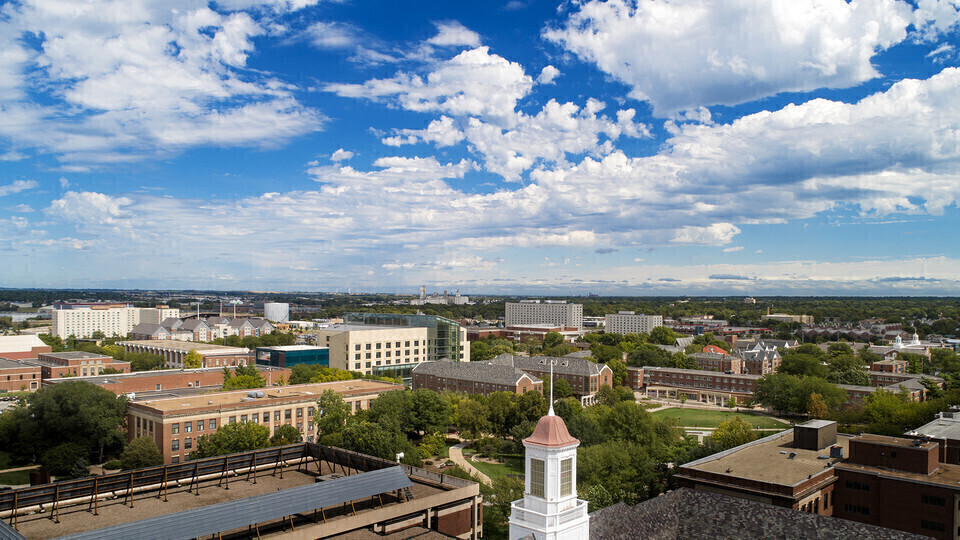
The Office of Research and Economic Development is supporting 24 research projects in 2022-23 through its Layman Awards program, which funds work that enhances a researcher’s ability to obtain external funding to support prominent scholarship.
The program offers two tracks — the Layman Seed Program, which funds new projects by early-career faculty who are nontenured at the time of submission; and the New Directions Program, which funds tenured faculty who are branching into new research directions or need funding to support pilot or developmental work toward the next step in a funded research program. Awards of up to $10,000 per application for each program are made possible by support from the University of Nebraska Foundation.
2022 Layman Seed Program awards
- Dena Abbott, Nebraska Center for Research on Children, Youth, Families and Schools; “Promoting women’s sexual wellness using comprehensive, rights-based adult sexuality education.”
- Mona Bavarian, chemical and biomolecular engineering; “Continuous manufacturing of microelectronics polymers via combination of data science and macroscopic modeling.”
- Lindsey Crawford, biochemistry, “Beta-herpesvirus (HHV-6) control of T-cell differentiation.”
- Aziza Cyamani, interior design, “Impacts of a transdisciplinary approach to practice-based learning on students’ success skills.”
- Irina Filina, earth and atmospheric sciences, “Structures and crustal variations of the mid-Norwegian margin from integrated geophysical analysis.”
- João Carlos Gomes-Neto, food science and technology, “Population-based mining of accessory genome loci to identify cryptic genotypic units of the zoonotic pathogen Salmonella Monophasic.”
- Jason Hawkins, civil and environmental engineering, “Environmental-economic systems as dynamic networks-of-networks.”
- Taeyeon Kim, Nebraska Center for Research on Children, Youth, Families and Schools, “Understanding equity in Nebraska school accountability: An exploration of school leaders’ narratives.”
- Salvador Lindquist, landscape architecture, “Beyond compliance: accessibility in greenway planning and design.”
- Qiang Liu, School of Computing, “Automated offline simulator augmentation with real-to-sim learning in mobile networks.”
- Nitesh Nama, mechanical and materials engineering, “Bubble based acoustic microswimmers.”
- Leslie Rault, entomology, “Molecular marker development for mosquito species census in pollinator gardens.”
- Arman Roohi, School of Computing, “Enabling robust quantized neural network acceleration in federated edge computing.”
- Brenden Timpe, economics, “Parenthood and the gender earnings gap in the United States.”
2022 Layman New Directions Grants
- Moe Alahmad, Durham School of Architectural Engineering and Construction, “Analysis and statistical prediction of variability in time-series data.”
- Steven Comfort, School of Natural Resources, “A biological and chemical approach to restoring eutrophic ponds in Nebraska.”
- Clay Cressler, School of Biological Sciences, “The role of the Daphnia microbiome in controlling harmful algal blooms in Nebraska.”
- Erica DeFrain, University Libraries, “Student researchers’ online information seeking habits and mediated guidance from academic libraries.”
- John DeLong, School of Biological Sciences, “Understanding the ecological implications of virology.”
- Emily Kazyak, sociology, “Intergenerational support, health, and wellbeing in minority families.”
- Srivatsan Kidambi, chemical and biomolecular engineering, “Synthetic biomimetic environment (BEASTS) to investigate the role of stiffness in altered redox signaling and inflammation in placenta during HDP.”
- Daniel Linzell, civil and environmental engineering, “Individual-level factors that and their impact on retention of women in the construction industry.”
- Etsuko Moriyama, School of Biological Sciences, “Interaction potential between non-human SARS-CoV-2 proteins and human cell proteins using co-evolution frameworks.”
- Hongfeng Yu, School of Computing, “Hierarchical knowledge-driven visual analytics for oncologic diagnosis.”







